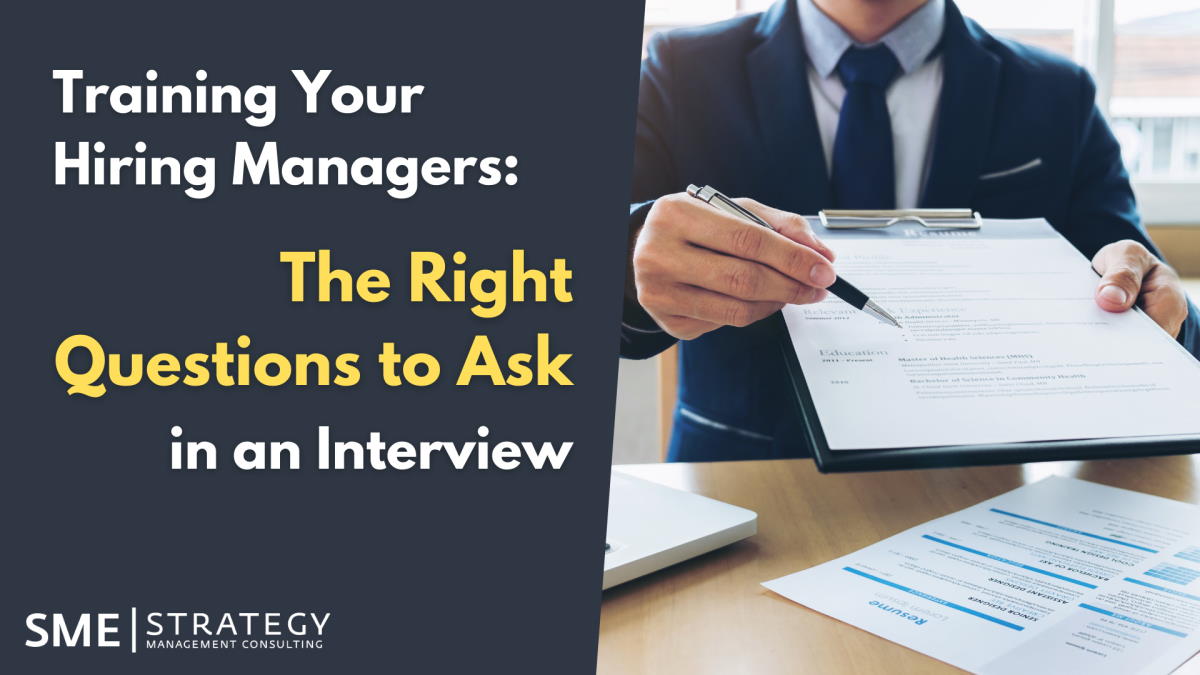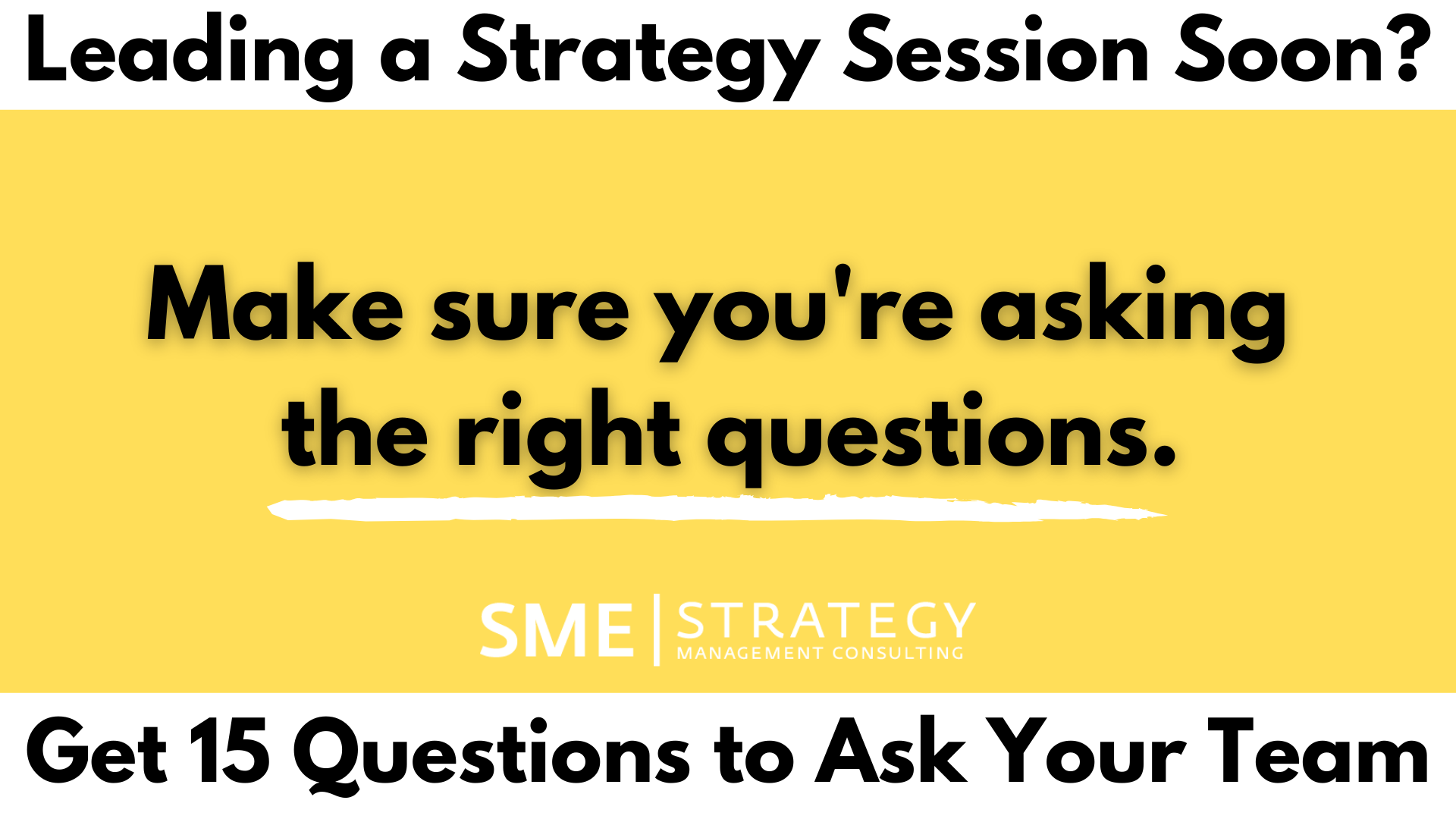Training Your Hiring Managers: The Right Questions to Ask in an Interview

Recruiting top talent is never an easy task. It was difficult enough even before the world was turned upside down - and now with remote/hybrid work, it's become more complex.
One of the many problems HR faces is the sheer amount of due diligence that must be done when scouting for talent. Naturally, you want to cast a wide net, in the hopes of attracting the cream of the crop. The problem is separating the good applications from the chaff.
Are you having a strategic planning session soon? Make sure you ask your team these 15 questions first:
AI-powered HR tools can help you with that task. Another all-important step that can save you a lot of time is to run DBS checks at this early stage, to make sure you don’t waste any time on dead-end inquiries. Doing this will reduce the pool of prospective candidates and allow you to focus on interviewing the most promising ones.
And you do want your hiring managers to focus on conducting interviews, as that is one of the most crucial parts of the recruitment process. Here’s what you need to do to make sure your HR is up to snuff and asking the right questions to fill any position.
Collect Feedback From Employees
Figuring out what questions need to be asked is the essential first step you need to take to ensure that your recruiters are effective. This starts with doing some internal polling.
Collect and analyze the feedback, opinions, and recommendations from your current employees. Pay particular attention to what the newly hired team members have to say on the matter. Ask them what they expect from the new colleague, what they want to see, and what they’d like to avoid.
Don't be tempted to skip this step. Workers often have a more complete picture of the situation on the ground than management or HR. Their comments and insight can draw a hiring manager’s attention to crucial details.
Systematize What You’ve Learned
Once you’ve analyzed all the feedback you have, it should be easy to come up with a list of qualities and qualifications.
This list describes the candidate you actually need for the role. Use it to draw a roadmap for your recruiters. It should be their main guide when performing interviews - the template they would use to judge all candidates.
Naturally, this roadmap is not the be-all and end-all of the hiring process. It’s just another vital tool that will help recruiters go through the steps of the process more smoothly and successfully.
Make sure that they know its importance and are familiar with its details is the key to conducting successful interviews.
Establish Procedure
Ultimately, the method of conducting interviews you choose will depend on your company’s preferences and needs. There are many ways of going about this, and many techniques you can use in your search for the right employee. What’s important is that you establish a uniform procedure that all your recruiters adhere to.
Discipline should be central for your recruiting managers when they’re conducting interviews. Regardless of the format of the interview or the level of formality you prefer, they should stick to the point. The due diligence on the candidate has been done, the background checks have already been performed, and you have their CV. Discussing those points, as well as the position’s details, should be the primary subjects of the interview.
Naturally, a recruiter may want to gauge an applicant’s character - and the most effective way to do so may be to engage in open conversation. Still, this should not be the focal point of the interview. Being courteous and sociable is a big part of the recruitment process - but they should not come at the expense of focusing on the task at hand.
Pick Your Questions Well
If you’ve done your due diligence so far, coming up with the precise questions that the recruiters need to ask in an interview should be no problem. Make sure that you include all the requirements you put in the job ad as your main questions. Follow them up with inquiries about more relevant details from your roadmap, and you’re all set.
Just make sure your managers know not to ask any illegal questions. What you can and can’t ask during an interview depends on your local legislation.
In general, it’s always a good idea to avoid asking about personal details that may be used to discriminate against the applicant. Don’t ask about their age, medical history, citizenship, religion, marital status, etc.
Normally, those details should not be relevant to you as a business. Anything you need to know that will have already popped up during the applicant's background check.
Note that receiving information on those subjects is not a crime if the interviewee volunteers it of their own accord. However, at no point should you ask them to do so, or elaborate on such matters.
Learn how a strategic planning facilitator can help you develop alignment & a common vision of success:
Or learn how to create your own strategic plan from scratch with our video course:
About the Author:
George Griffiths is the Managing Director of uCheck. He has been brought up to know the values of uCheck ever since his first involvement in the family-run business at the age of seven. In 2013, George came on board full time with the goal of working together to create a fluid and successful business development structure. His focus for the future is to drive the development of the uCheck HR Platform and continue to align his way of working with their mission statement — to always care about getting it right.





